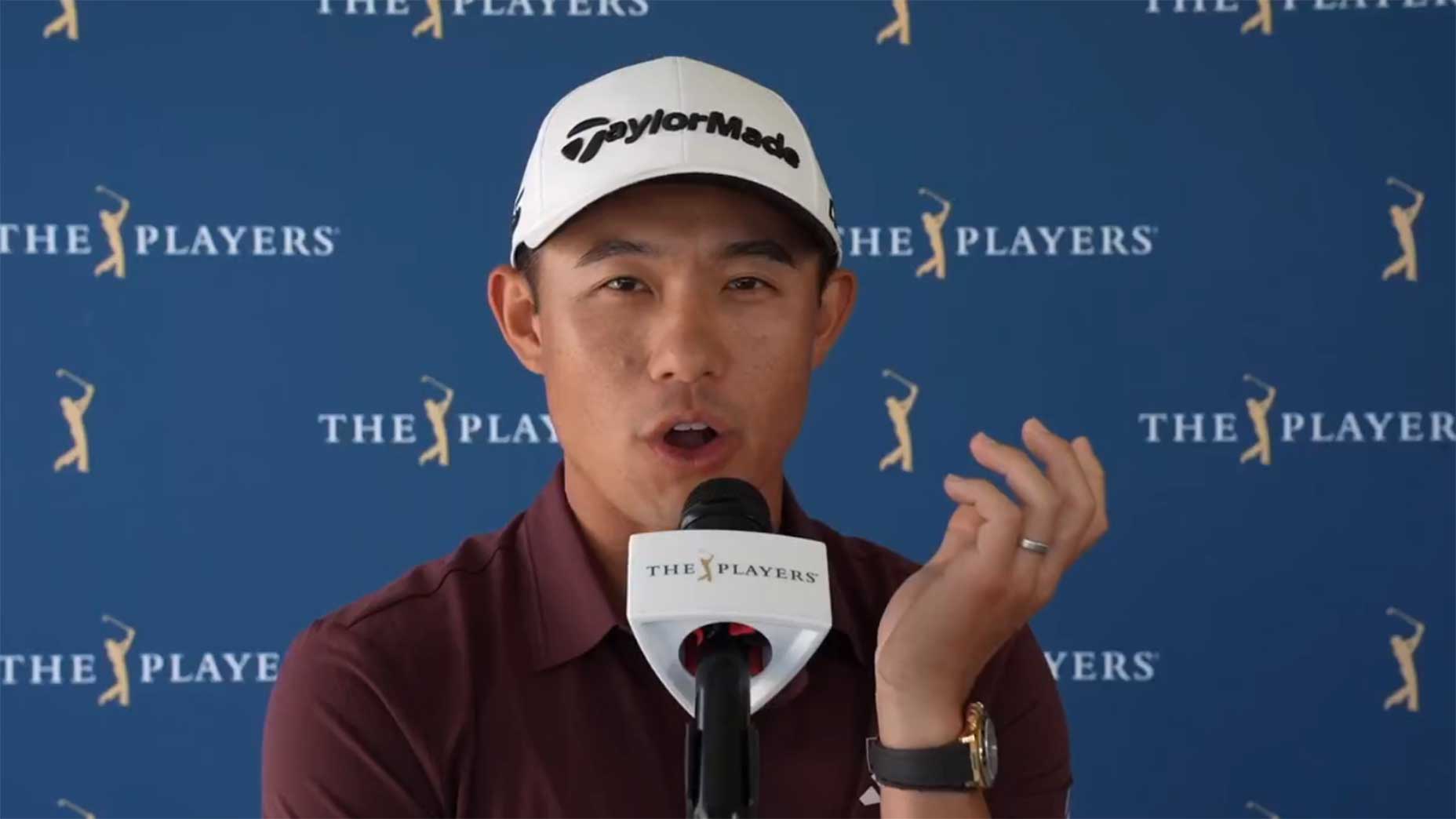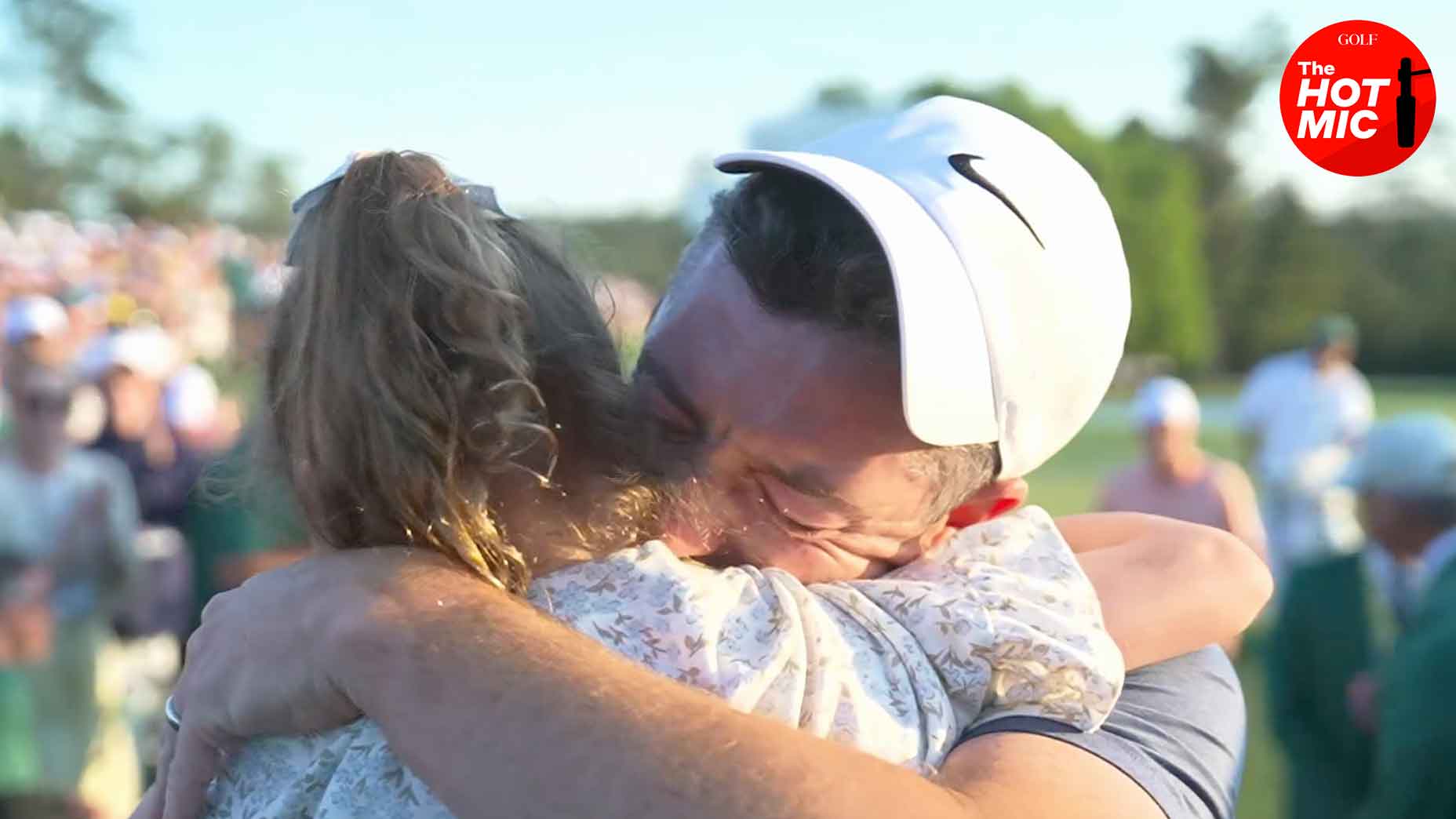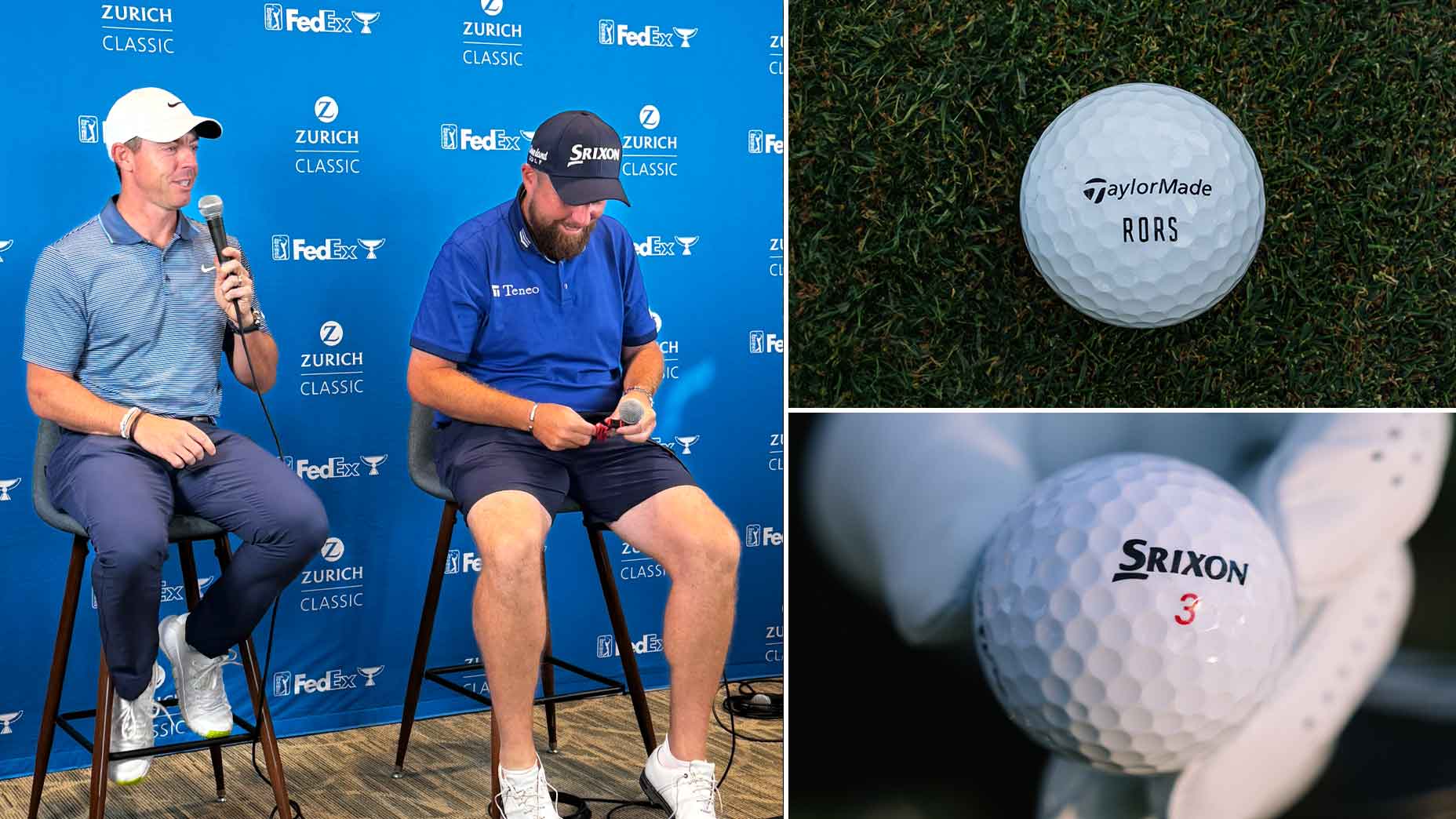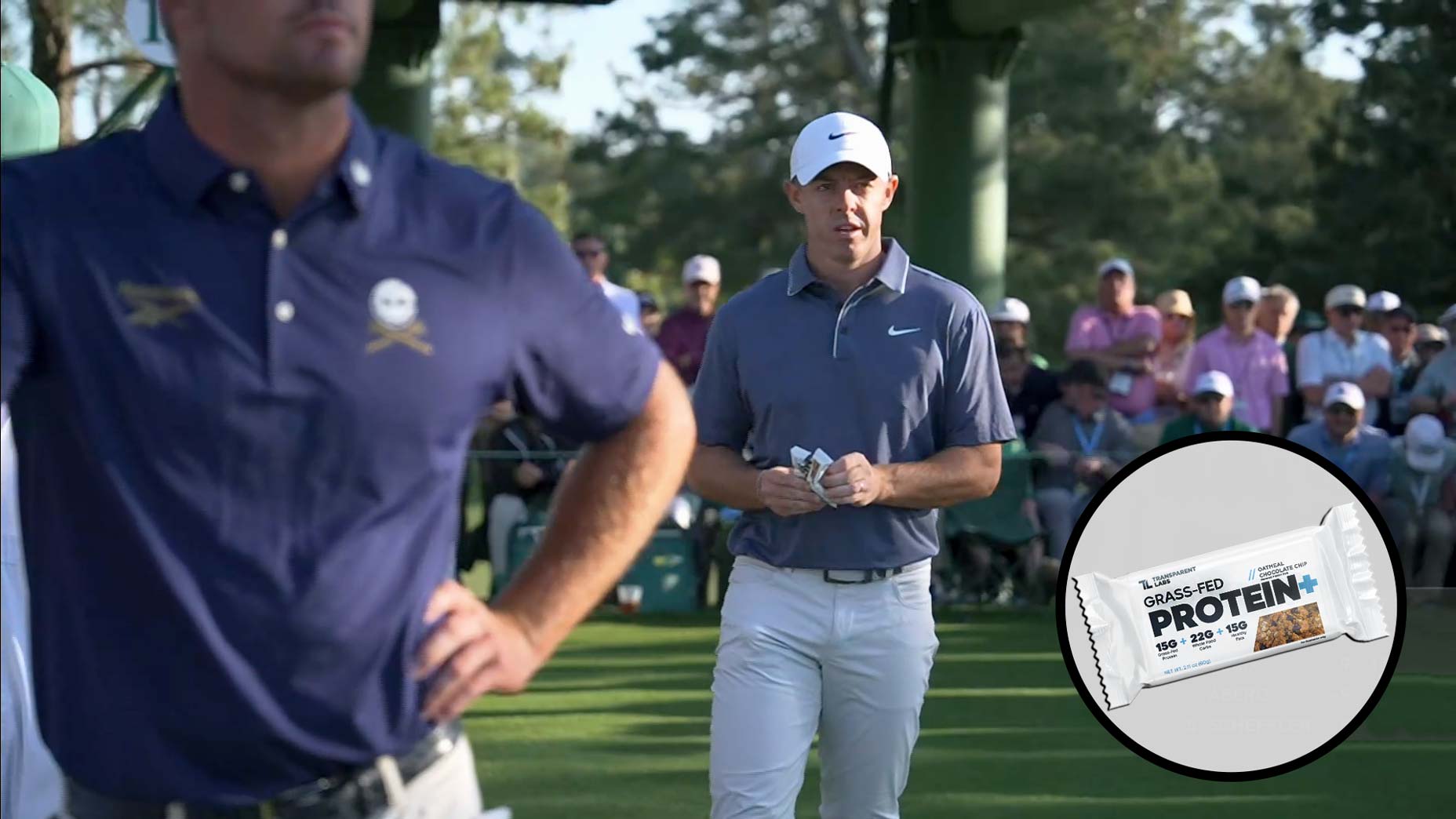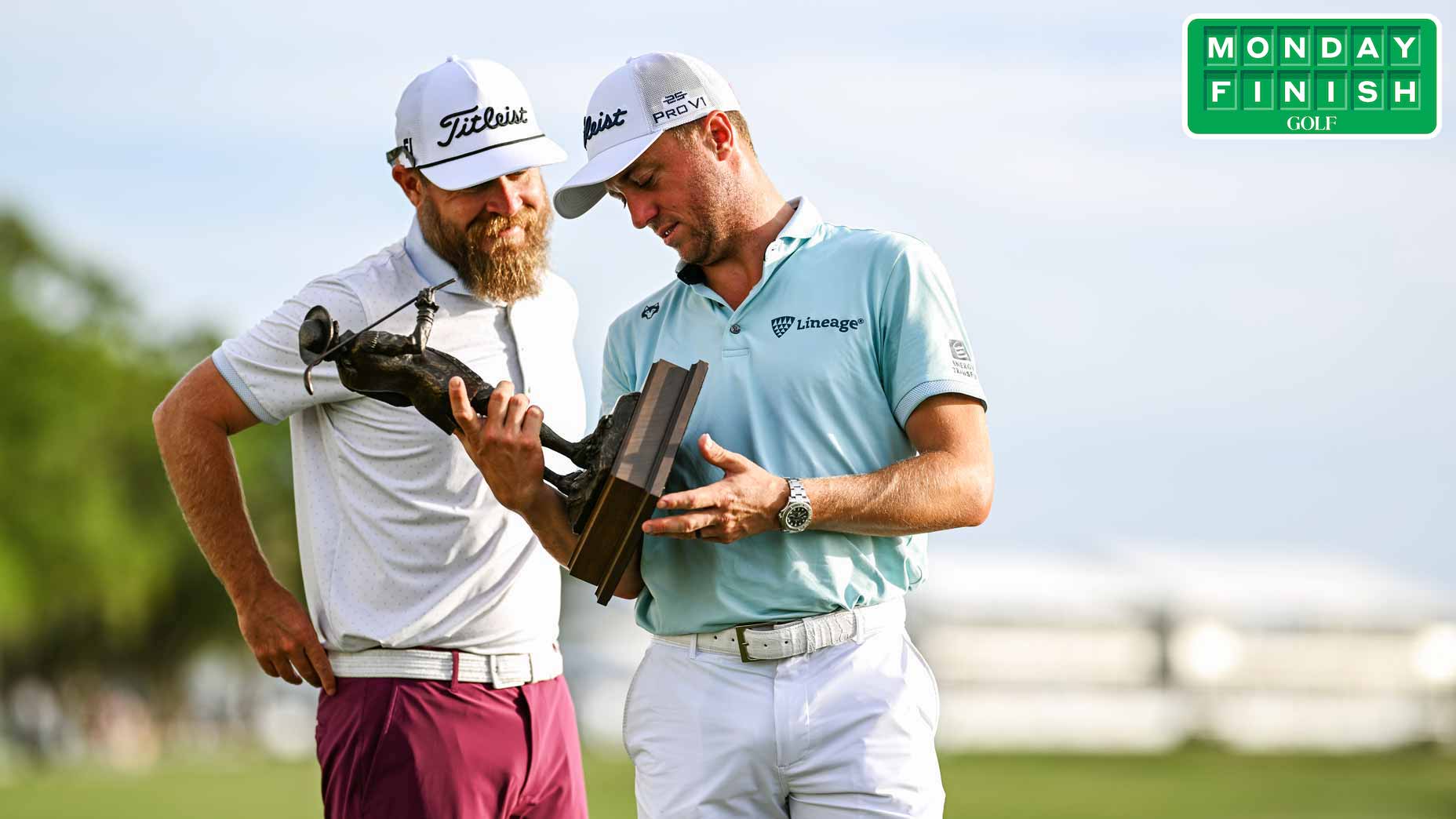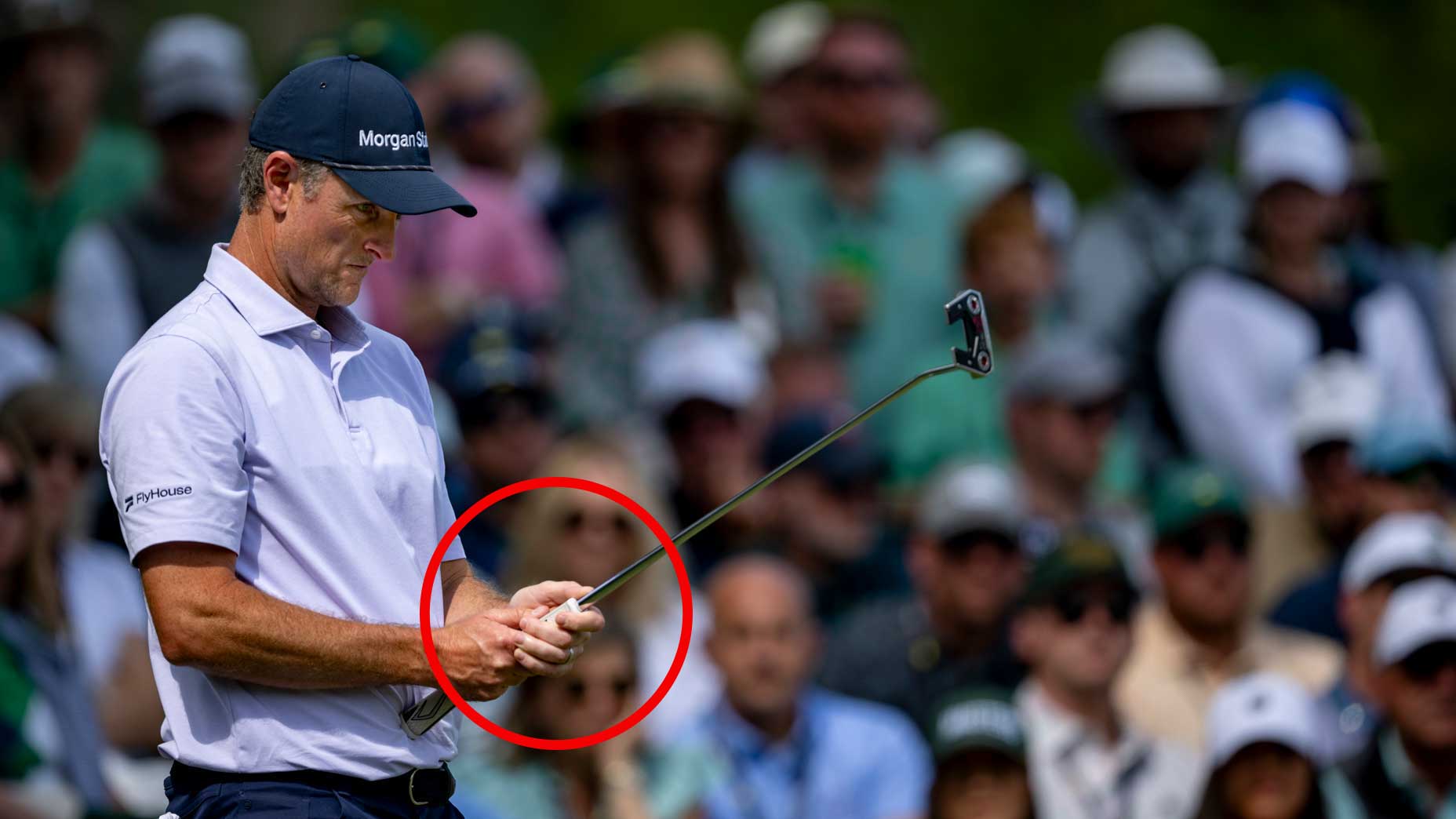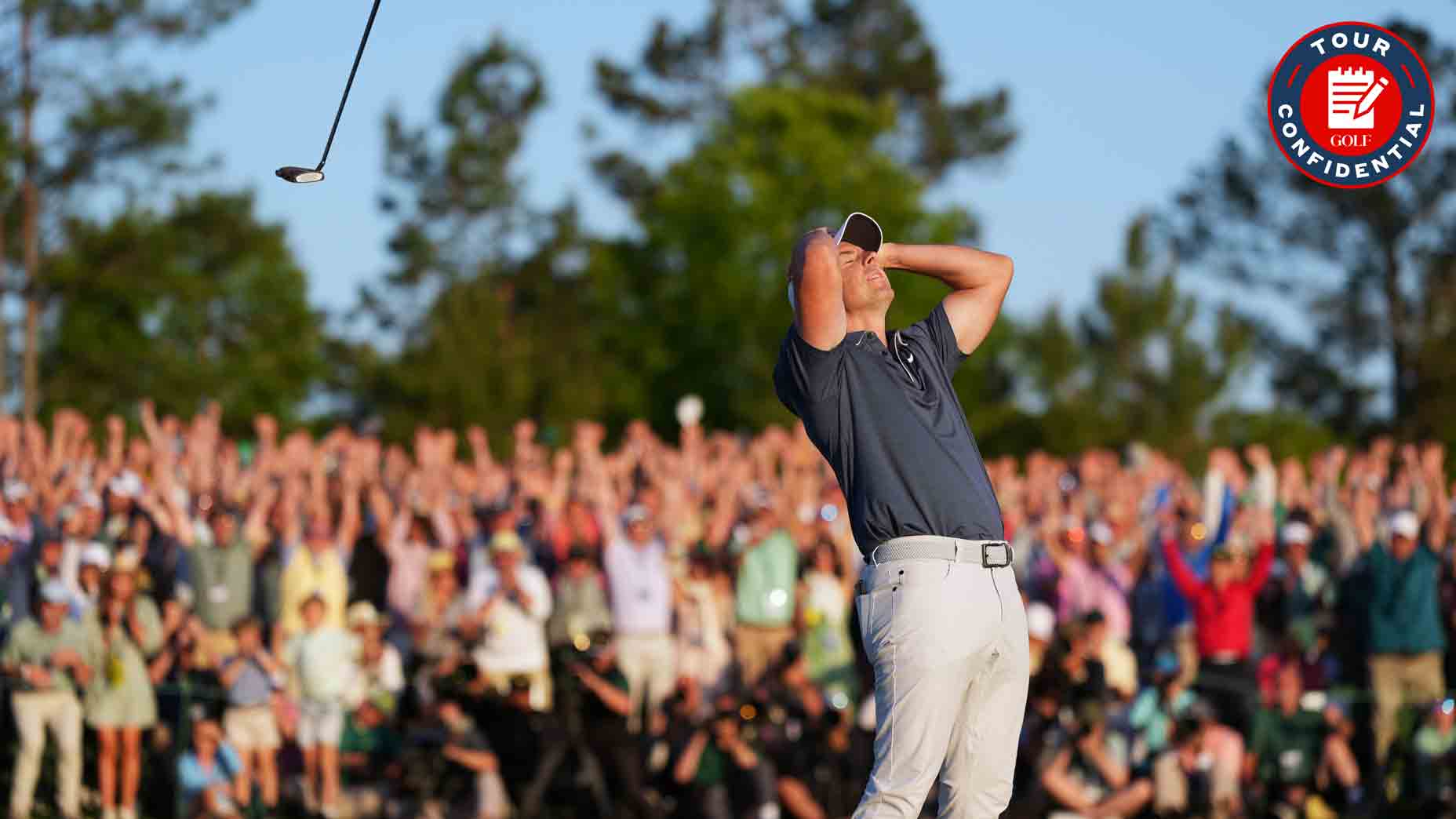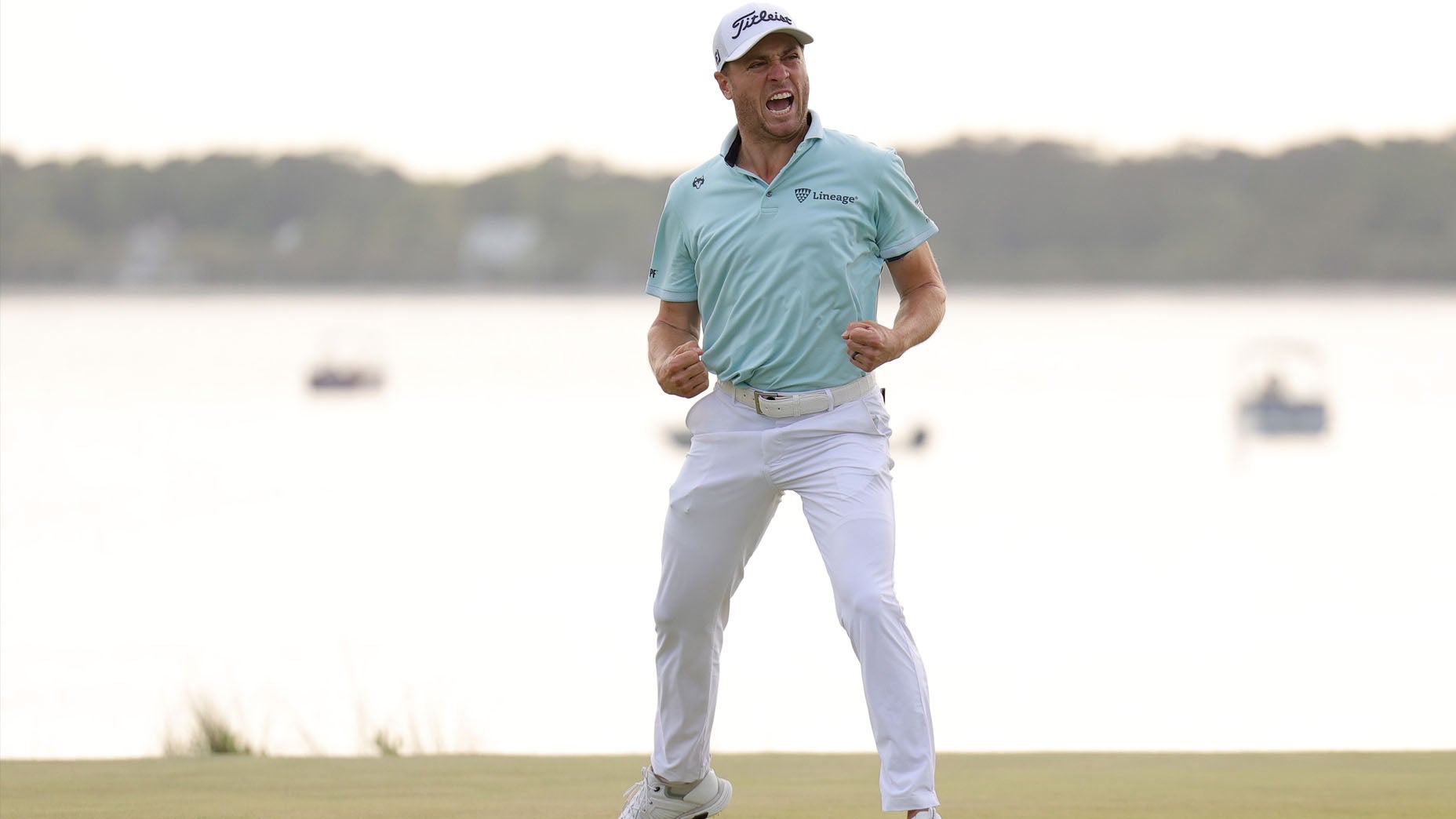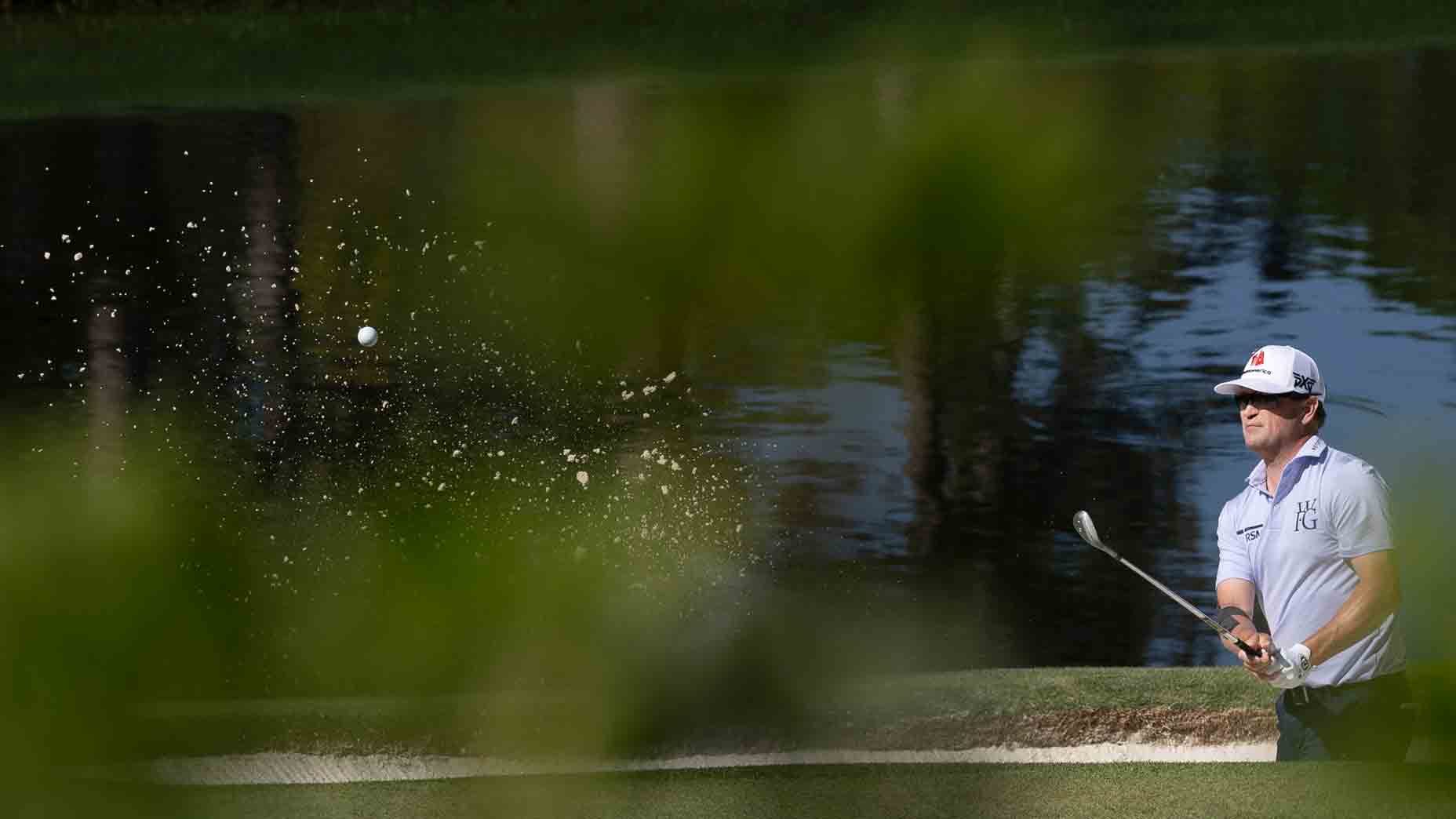‘He’s right’: Rory McIlroy defends Collin Morikawa in media controversy
- Share on Facebook
- Share on Twitter
- Share by Email
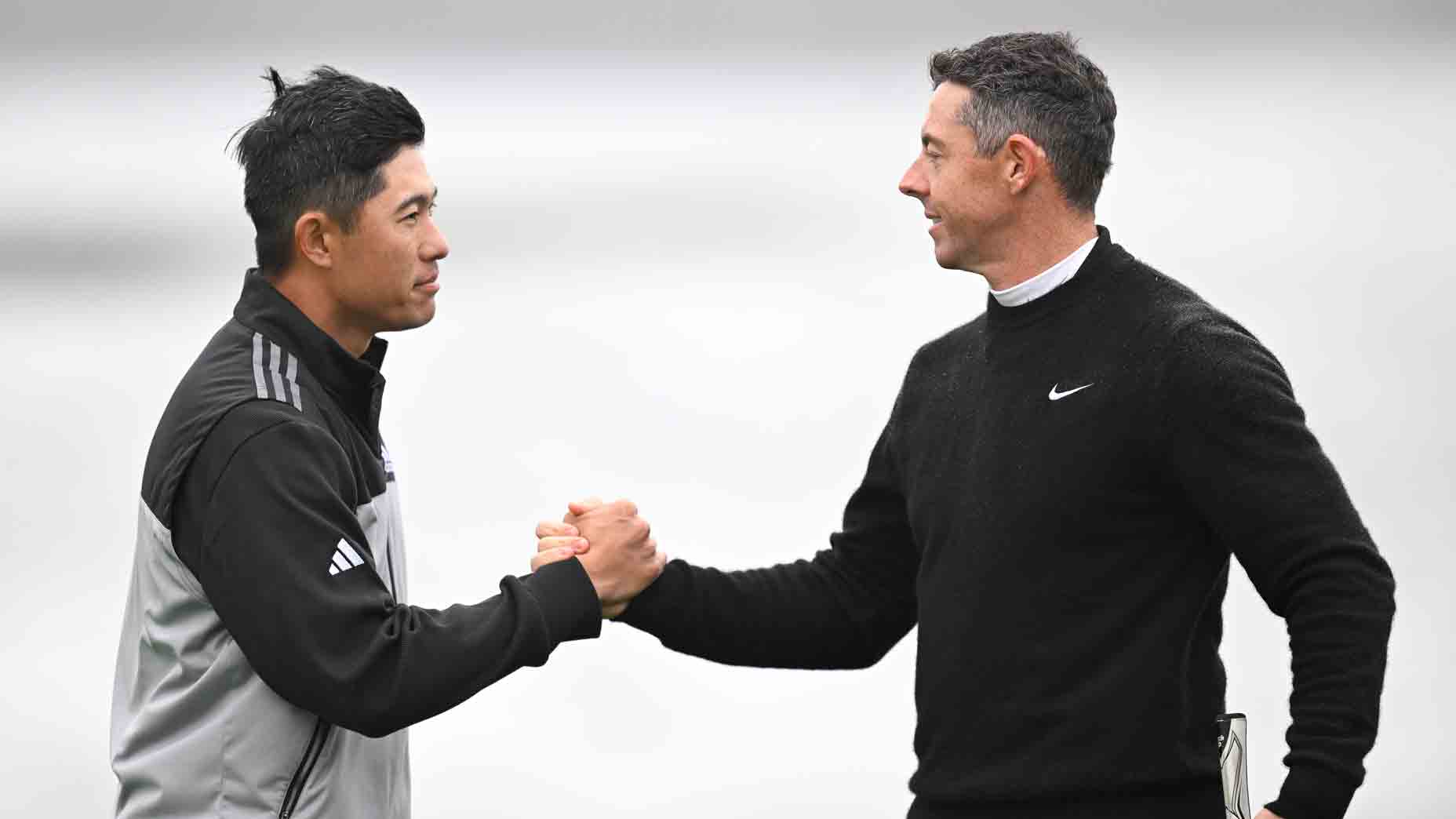
Collin Morikawa and Rory McIlroy in February at the AT&T Pebble Beach Pro-Am.
Getty Images
AUGUSTA, Ga. — Collin Morikawa was right, Rory McIlroy says.
But he could’ve expressed his recent thoughts on player media obligations “better.”
Talking Tuesday in his pre-Masters press conference, McIlroy was asked about comments Morikawa made last month at the Players Championship, after he didn’t talk to reporters a week earlier following a finish where he lost a late lead at the Arnold Palmer Invitational. Ahead of the Players, after being questioned about the move, Morikawa said he “didn’t owe anyone anything,” which drew criticism from analysts Brandel Chamblee and Paul McGinley and pro Rocco Mediate — and that led to an unprompted response from Morikawa after his Players second round.
“I just want to add one more thing. I might bite my tongue after saying this, but to the Brandel Chamblees, to the Paul McGinleys, to the Rocco Mediates of the world, I don’t regret anything I said,” Morikawa said. “You know, it might have been a little bit harsh that I don’t owe anyone, but I don’t owe anyone.
“I respect the fans. I’m very thankful for them. I’m grateful. It makes me emotional, but it’s just — it hurts to hear people say this, and especially you guys, because I finished the round and I went to go sign for 10 minutes, 15 minutes for all the people after. Not a single person from media went to go follow me because, I don’t know. But that’s me.
“So for people to be calling me out is — it’s interesting. It just, it doesn’t show anything. I mean, look, I get what you guys are saying. But I was there. I was signing for every single person right after the round, whether they wanted it or not. I finished second. They could care less. But yeah, I’m going to leave it at that, all right? So thank you, guys.”
McIlroy, notably, also skipped interviews last June during the final round of the U.S. Open, when he missed a pair of short putts and finished runner-up to winner Bryson DeChambeau. That act led to this exchange Tuesday between a reporter and McIlroy (the question is in italics):
“Rory, Collin Morikawa caught some criticism at the Players for saying he owes the media nothing for having left Bay Hill early. You obviously caught some heat after doing that at Pinehurst. The conversation after something like that in comparison to other professional athletes, golfers can be a little more sensitive. I’m wondering if you think that’s a fair or unfair assessment.”
“Well, he’s right,” McIlroy said. “Not that I think he could have worded it a little bit better, but look, every other athlete, whether it be in the NBA, NFL, they’re obligated to speak to you guys after a game. We’re not. Whether that’s something that the PGA Tour looks to in terms of putting that into their rules and regulations, but as long as that’s not the case and we have that option to opt out whenever we want, expect guys to do that from time to time.”
Last July, in his first press conference since the U.S. Open, McIlroy said he didn’t regret not speaking to reporters. Reporters, he said, were “the least of my worries.”
Collin Morikawa fires back at Brandel Chamblee, critics of his media-duckingBy: Sean Zak
Morikawa’s comments after his Players second round also drew responses from Chamblee and McGinley. Chamblee said that Morikawa didn’t “say no” to reporters, but to fans, sponsors, the PGA Tour and players who do interviews.
“Everybody’s tuned in and engaged,” Chamblee said on Golf Channel. “Golf’s never been better. We’re all in. The purses are ungodly high and there’s a sense that there’s an entitlement, that they don’t owe anybody anything. And he voiced what a lot of people suspected too many Tour players felt.
“It’s not true of all of them. A lot of them are great with the media and give us these interviews afterwards. But it sets a dangerous precedent. And if he really does feel that way, that’s fine, it’s his opinion. I have mine. He has his. But I think he’ll regret it if he carries on turning down the media after he loses because he’s so good, he’s going to have many more painful losses. He’s going to have many more wins, too, but it’s just part of the game.”
McGinley furthered the “entitlement” thought, saying that it’s “a view from a lot of the public.”
“So it’s a word of caution to the players more than anything else that, you know, don’t come out and say something like, I don’t owe anybody anything because that does not sound good,” he said on Golf Channel. “Maybe it was a wrong choice of words, but don’t say anything like that.
“It doesn’t sound right and it’s not what the public want to hear because ultimately, at the end of the day, the public are the ones paying higher prices to come to events. The public are the ones being denied all the best players coming together more regularly in terms of the top events as the product of golf has become diluted. And the media is a prism for all of that.”
Latest In News
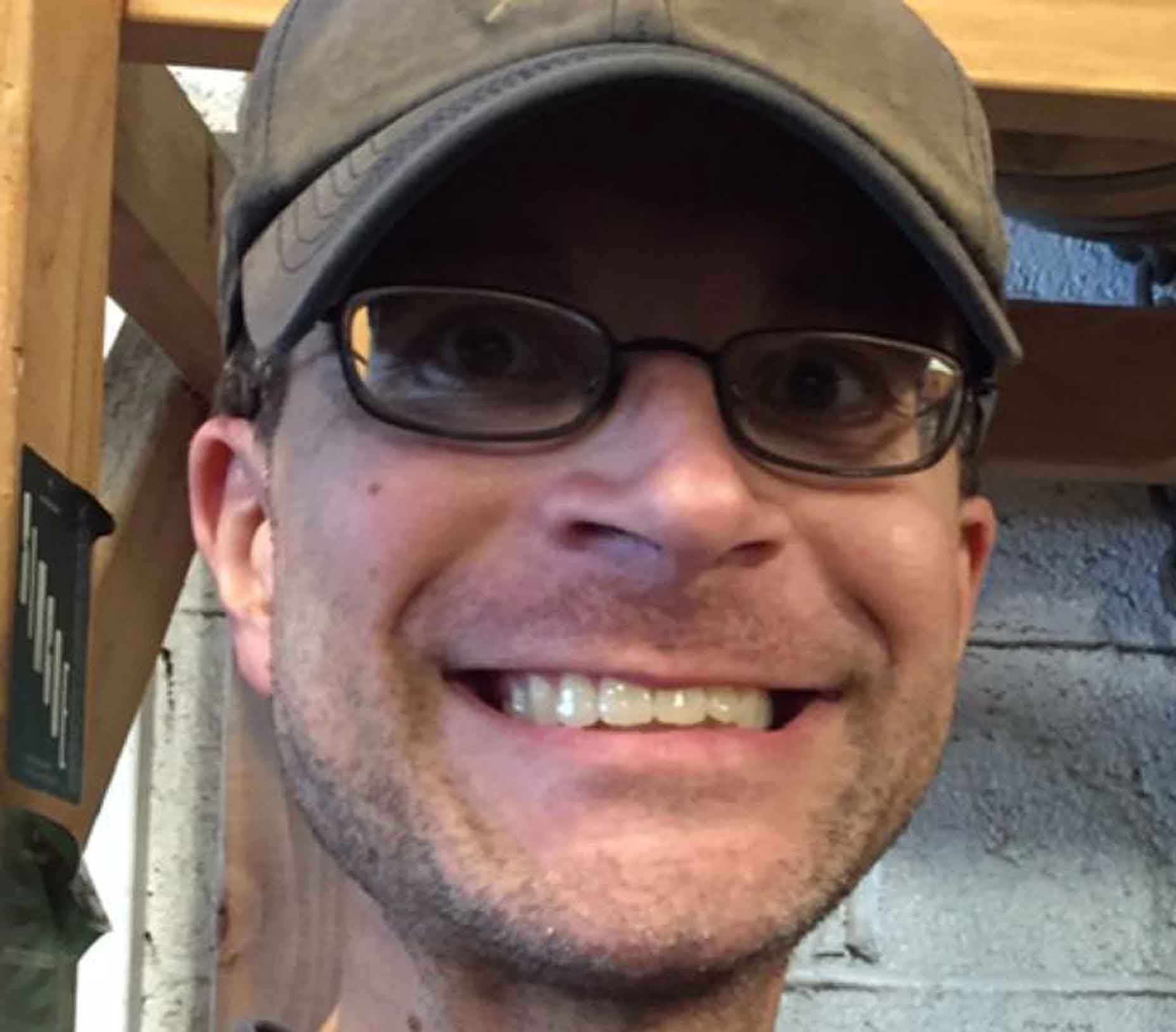
Nick Piastowski
Golf.com Editor
Nick Piastowski is a Senior Editor at Golf.com and Golf Magazine. In his role, he is responsible for editing, writing and developing stories across the golf space. And when he’s not writing about ways to hit the golf ball farther and straighter, the Milwaukee native is probably playing the game, hitting the ball left, right and short, and drinking a cold beer to wash away his score. You can reach out to him about any of these topics — his stories, his game or his beers — at nick.piastowski@golf.com.

